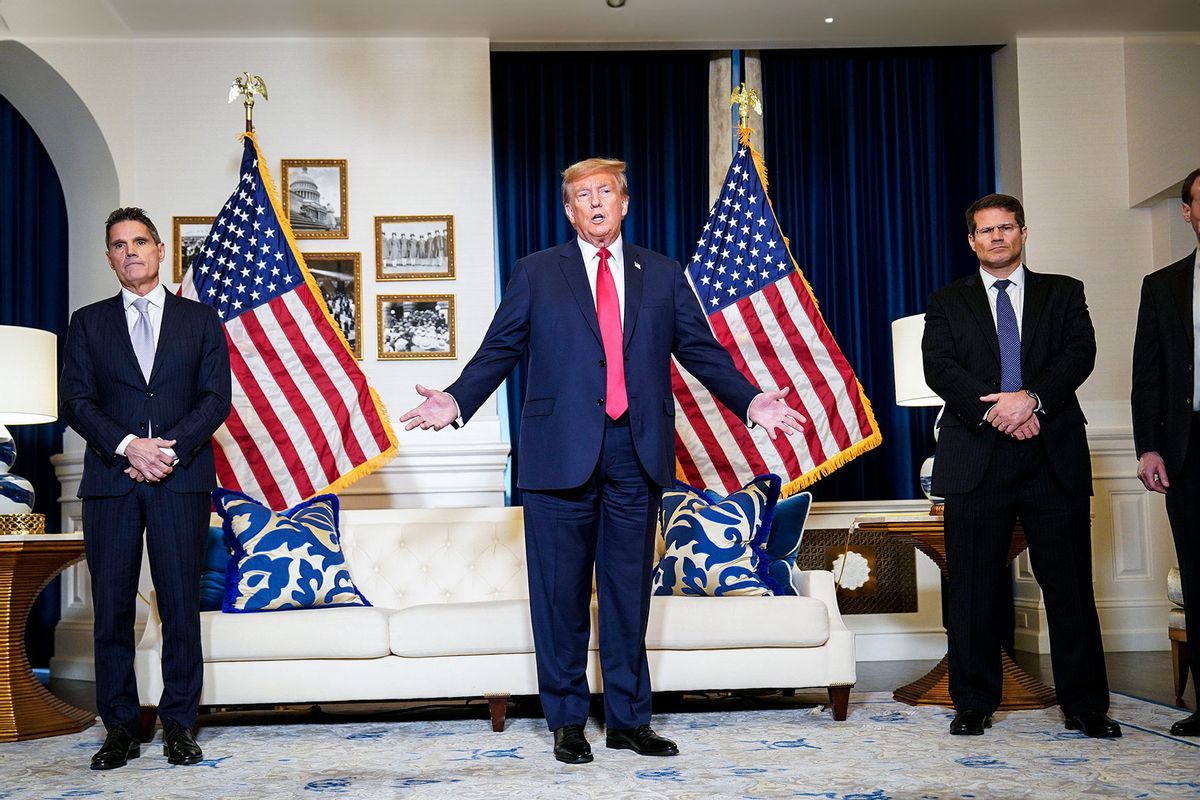An attorney for Donald Trump pushed an expansive interpretation of presidential immunity before a federal appeals court on Tuesday, arguing that presidents can't face prosecution for selling pardons or assassinating rivals through SEAL Team Six, The Messenger reports. John Sauer, the former president's lead lawyer, argued that only an impeached and subsequently removed president would be at risk of prosecution for those kinds of crimes.
The three-judge panel appeared skeptical of the interpretation, acutely questioning and interjecting Sauer in the early minutes of the oral arguments as Trump looked on nearby. “Could a president order SEAL Team Six to assassinate a political rival? That’s an official act–an order to Seal Team Six,” U.S. Circuit Judge Florence Pan asked Sauer.
“He would have to be, and would speedily be, you know, impeached and convicted before the criminal prosecution,” Sauer replied. The former president was impeached twice by the then-Democrat-controlled House of Representatives but was acquitted during trials in the Senate, which was then controlled by Republicans. He has since been indicted four times in Florida, Washington, D.C., New York and Georgia.
James Pearce, assistant to special counsel Jack Smith, pointed out that Sauer's proposed condition of prosecution would allow a president to claim immunity for crimes by resigning before any potential Senate conviction. "That is an extraordinarily frightening future," Pearce said. But Sauer countered that it's "not a frightening future. That’s our republic.” The U.S. Court of Appeals for the District of Columbia began hearing arguments in Trump's appeal over the immunity question Tuesday following the trial judge's rejection of his immunity arguments early last month.



Shares